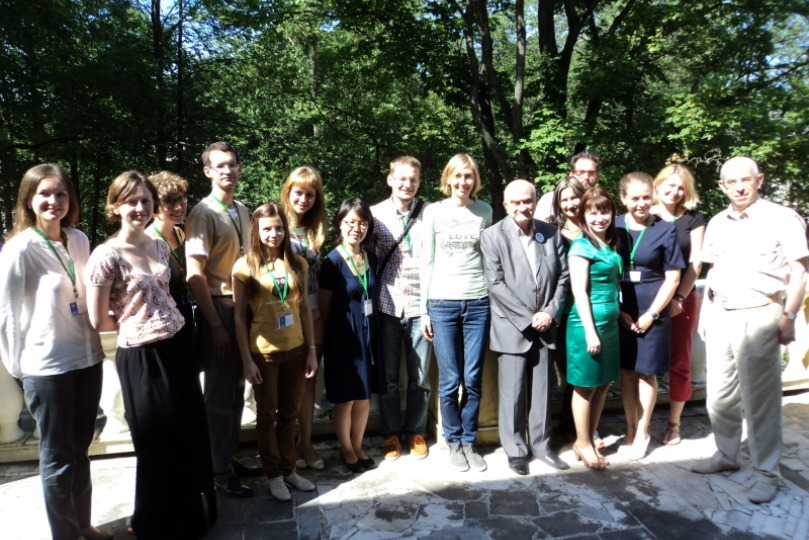Cultural Events in Economic Reflection
From July 7 – 13, 2014, the Laboratory of Economics of Culture at the HSE in St. Petersburg held an International Summer School ‘Impacts of Cultural Events on Small and Medium-size Art-oriented Towns’ (ICE – SMART). This was the first summer school organized as part of the master’s programme ‘Experience Economy: Hospitality and Tourism Management’.

From July 7 – 13, 2014, the Laboratory of Economics of Culture at the HSE in St. Petersburg held an International Summer School ‘Impacts of Cultural Events on Small and Medium-size Art-oriented Towns’ (ICE – SMART). This was the first summer school organized as part of the master’s programme ‘Experience Economy: Hospitality and Tourism Management’.
The studies conducted at this Laboratory (Academic Supervisor – Valery Gordin) have been international from their very beginning. They are based on the rich international experience that exists in the study of the economics of culture. The HSE has tried to find its own niche in studying and researching cultural events. The aim of the Summer School was not only to share the accumulated experience of studies in impacts of cultural events, but to harmonize methods of research. Dozens of thousands of festivals and holidays take place around the world every day, and every single one of them has many stakeholders – governmental bodies, sponsors, participants, guests etc, and it is very important to be able to correctly evaluate the effects of each cultural event.
Participants of the Summer School included master’s students, including those from the HSE in Moscow, as well as graduates, young researchers and lecturers. The participants came from Poland, Slovenia, South Africa, Kirgizstan, Japan, Ukraine, and, of course, Russia. The list of lecturers was also international: two speakers were from the Netherlands, Margo Rooijackers and Gert-Jan Remmers, and one was from Belgium, Pieter Jan Valgaeren. The Russian speakers included Evgeny Yasin, Tatiana Abankina, Leonid Limonov, and Irina Kizilova. Marina Matetskaya conducted workshops and situational games.
An important outcome of this school was the decision to create a network community of young researchers in cultural events. The community will be international, and its founders are planning to create a platform to exchange information, knowledge, and opinions, as well as to implement comparative research projects and publish joint research papers.
Unsurprisingly, the cultural programme of the School also turned out to be very active: Sergey Akopov took the guests on a walk to Ekaterininsky Park, the participants visited the park, palace and underground tunnel in Gatchina, they saw the night raising of the bridges and visited the Manifest 10 modern arts biennale, which is taking place at the Hermitage Museum. In addition to that, some of the more active participants also managed to visit Pavlovsk and Babolovsky parks.
The Laboratory of Economics of Culture is also planning to organize another summer school, next year, and although the details are not yet finalised, we’ll let you know as soon as they are!
Firsthand impressions
Mateja Rot, Slovenia:
‘The Summer School is an opportunity for me to meet and work together with experts in my field of research, to learn something new and investigate current research trends, as well as talking to the School lecturers, guests and participants. The organizers made a huge effort to create a favourable working atmosphere: the professionals enjoyed working in such a beautiful place as St. Petersburg. I left the school with new skills and useful contacts for joint projects, as well as knowledge about cultural events in Russia. I’ll be using all this in my further work on my research project’.
Roosa Rytkönen, Finland:
‘I participated in the Summer School as part of my summer internship. My main task was to look for new information and ideas for one of my organization’s projects – I work for Calvert Forum. ICE-SMART turned out to be an excellent platform for interaction. One of its great features was its multidisciplinary character, which really allows you to go beyond the limits of your academic interests. I learned many new things about the factors which are important when considering your projects and whether they are topical and applicable to real life’.
Prepared by Yulia Medvedeva

